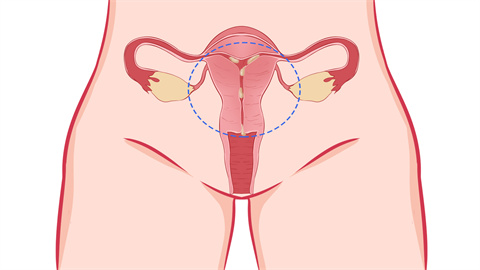What causes clitoral itching?
Clitoral itching may be caused by poor hygiene habits, clothing irritation, clitoritis, vulvitis, or vulvovaginal candidiasis. If abnormalities occur, timely medical attention is recommended. Specific analysis is as follows:

1. Poor hygiene habits: Prolonged lack of vulvar cleansing may lead to accumulation of urine and secretions in the clitoral area, causing irritation and itching. It is important to develop the habit of cleaning the vulva daily with warm water, keeping the area dry, which can gradually relieve the itching.
2. Clothing irritation: Wearing synthetic fiber or tight-fitting underwear, or using irritating detergents to wash underwear, may leave chemical residues that irritate the clitoral skin, causing itching. It is recommended to switch to cotton, loose-fitting, breathable underwear and use mild, non-irritating detergents to reduce irritation.
3. Clitoritis: Infections caused by pathogens such as bacteria or fungi can lead to inflammation of the clitoris, causing itching, accompanied by symptoms such as redness, mild pain, and increased secretions in the affected area. Doctors generally recommend topical application of Compound Phellodendron Liquid, Clindamycin gel, or Miconazole Nitrate Cream to inhibit pathogens and reduce inflammation.
4. Vulvitis: Inflammation caused by pathogen infection or chemical irritation of the vulvar skin and mucous membranes can spread to the clitoris, causing itching, accompanied by symptoms such as redness, burning sensation, and abnormal secretions in the vulvar area. Doctors usually prescribe Povidone-iodine solution, Mupirocin ointment, or Fuyankang tablets to clean the affected area, control inflammation, and relieve itching.
5. Vulvovaginal candidiasis: Overgrowth of Candida can cause infection, with the pathogens and their metabolites irritating the clitoris, leading to intense itching, accompanied by symptoms such as white, curd-like secretions and vulvar swelling. Patients may follow medical advice to use Clotrimazole suppositories, Fluconazole tablets, or Nystatin vaginal effervescent tablets to inhibit fungal growth and eliminate infection.
In daily life, scratching the clitoral area should be avoided to prevent skin damage and secondary infection. Maintaining cleanliness and dryness of the vulva and avoiding the excessive use of irritating cleansers are also important. If clitoral itching persists or is accompanied by other discomforts, timely medical consultation and examination are necessary to identify the cause and initiate targeted treatment.




